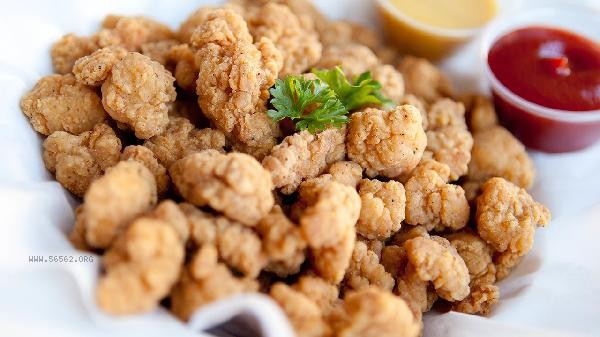Chicken stewed with salt can be remedied by diluting it with water, adding side dishes to absorb salt, prolonging the stewing time, neutralizing it with acidic ingredients, and thickening it with starch water.

1. Dilute with water
When the chicken is found to be too salty, the most direct method is to add an appropriate amount of water to the pot. The addition of water can directly reduce the salt concentration of the soup, but it needs to be boiled again and the stewing time appropriately extended to ensure that the chicken tastes evenly. After adding water, it is necessary to season again. It can be added in small amounts multiple times to avoid excessive saltiness. If hot water is used, it is more beneficial to maintain the taste of the ingredients.
2. Adding side dishes
potatoes, tofu, vermicelli and other flavorful ingredients can effectively absorb excess salt. Cut potatoes into large pieces and stew for 15 minutes to soften and absorb salt. For tofu, it is recommended to choose old tofu for better cooking durability. This method can adjust the saltiness and increase the richness of dishes, but it is important to note that the side dishes themselves are not salty to avoid affecting the overall flavor balance.
3. Extended Stewing
When no additional ingredients are added, the pot lid can be opened and simmered over low heat to naturally reduce saltiness through water evaporation. This method is suitable for situations where there is ample time, and stirring is required during the process to prevent sticking to the pot. When the evaporation rate is about one-third of the original soup, the saltiness will be significantly improved, but it may cause the chicken taste to become dull. It is recommended to add a small amount of broth to enhance freshness in the later stage.

4. Acidic blending
The acidic components of lemon juice, vinegar, or tomatoes can neutralize the perception of saltiness. When adding, pour along the edge of the pot and stir, adding a small amount each time to avoid excessive acidity. Tomatoes need to be cut into pieces and stir fried until soft, then added to blend better with the chicken flavor. This method has a significant effect on slight saltiness, but it will change the original flavor tone, making it suitable for cooking scenarios with a wide range of taste acceptance.
5. Starch thickening
Mix potato starch or corn starch into water starch, pour it into a pot and quickly stir to form a thick soup. Starch molecules can partially encapsulate salt, reducing the direct perception of salty taste by taste buds. After thickening, the soup will adhere to the surface of the chicken, and it is recommended to pair it with light staple food. Note that the sauce should not be too thick to avoid affecting the original taste of the ingredients.

In daily cooking, controlling salt content should be prevented from the source. When marinating chicken, the amount should not exceed 2% of the weight of the ingredients, and it is safer to add salt after stewing. If it is still too salty after remedy, some soup juice can be fished out for other purposes, or it can be used with salt free rice, Mantou and other staple foods to balance intake. Long term high salt diet may increase the risk of hypertension. It is recommended to use low sodium salt or spices to replace some salt and cultivate a light diet habit. When dealing with salty foods, vegetables rich in potassium ions such as spinach and celery can be paired to promote electrolyte balance in the body.








Comments (0)
Leave a Comment
No comments yet
Be the first to share your thoughts!